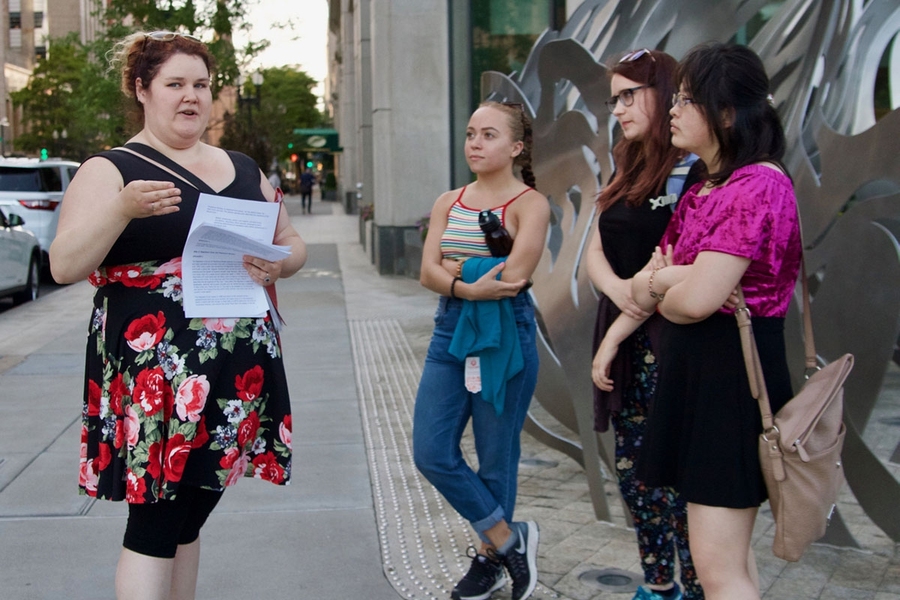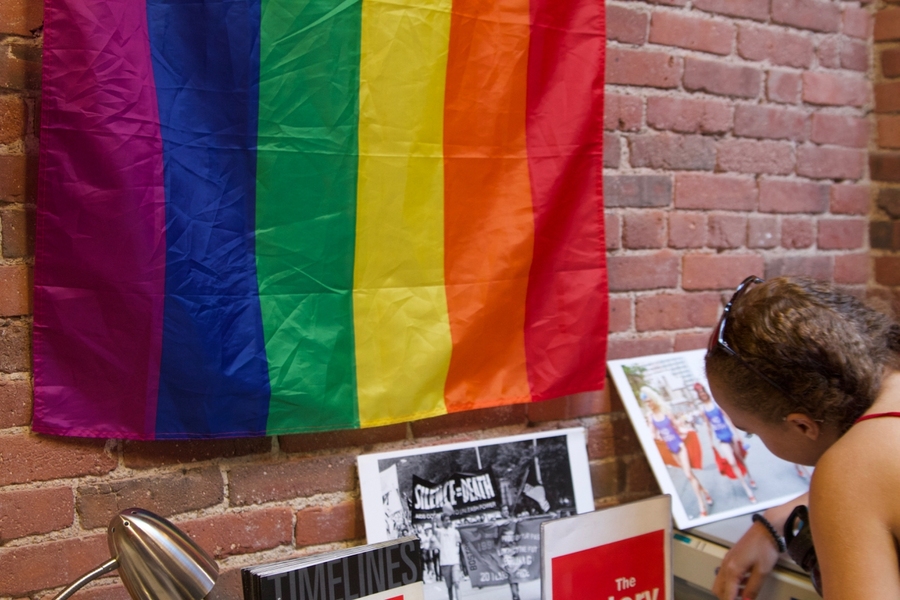On July 12, a group of MIT students, staff, and faculty embarked on The History Project’s Pride Tour. The two-hour tour was led by Joan Ilacqua, co-chair of the board of directors for The History Project, which aims “to document, preserve, and share Boston’s LGBTQ history.”
Students connected with Ilacqua as part of the Priscilla King Gray (PKG) Center’s Summer Series, a program that offers numerous community service and engagement opportunities for students throughout the summer. All programs are free for the MIT community, and each allows them to explore and contribute to the greater Boston area through community service and outreach.
The tour followed the trail of the first-ever Boston Pride parade, while highlighting various historic LGBTQ landmarks. The day ended with a visit to The History Project’s archives. Here, students were able to see firsthand various historical documents beyond what they had learned on the tour, including posters, photographs, and newspaper clippings from Boston’s early days of LGBTQ activism.
Charlotte Minsky, a rising junior double majoring in earth, atmospheric, and planetary sciences (Course 12) and humanities and engineering (Course 21E), explains how the tour affected her: “Personally, as a history nerd, I really love seeing the archives and actually handling the historical documents,” she says. “It was really amazing to hear about all these issues and to see these places, but [especially] to actually come in and touch and see these things the people we had just been talking about were handling and creating.”
Minsky said that the program was eye-opening. “As MIT students, we often think of ourselves as separate from the Boston community,” she explains. “We stay in our bubble [...] and don’t really engage with what’s around us, so I think it’s really important for us [...] to realize [...] all of the social and cultural contexts of the technologies we are engaging with so we can be more informed in our decisions of what to do with the opportunities we’ve been granted.”
Danny Becker, program coordinator for the PKG Center, seconds Minsky’s sentiment about the importance of these programs for MIT students. “To understand the opportunities in their community to apply those skills is truly impactful to their experience with MIT,” he says. “To see these communities and the context in which they are living is invaluable [to MIT students] in understanding how to leverage their skills.”
Ilacqua, who enjoys observing the differences between generations of LGBTQ people, says it is vital to close the gap between these age groups. “I think it’s super important to talk about history with people who haven’t experienced it because we are all part of the same story,” she explains. “I find it really fun but also really rewarding to hear about how people are experiencing life as an LGBTQ person today, to hear about what they know about and what they’ve heard about, [...] and to think about these questions of coming out and meeting people [...] and having the right to be gay.”








